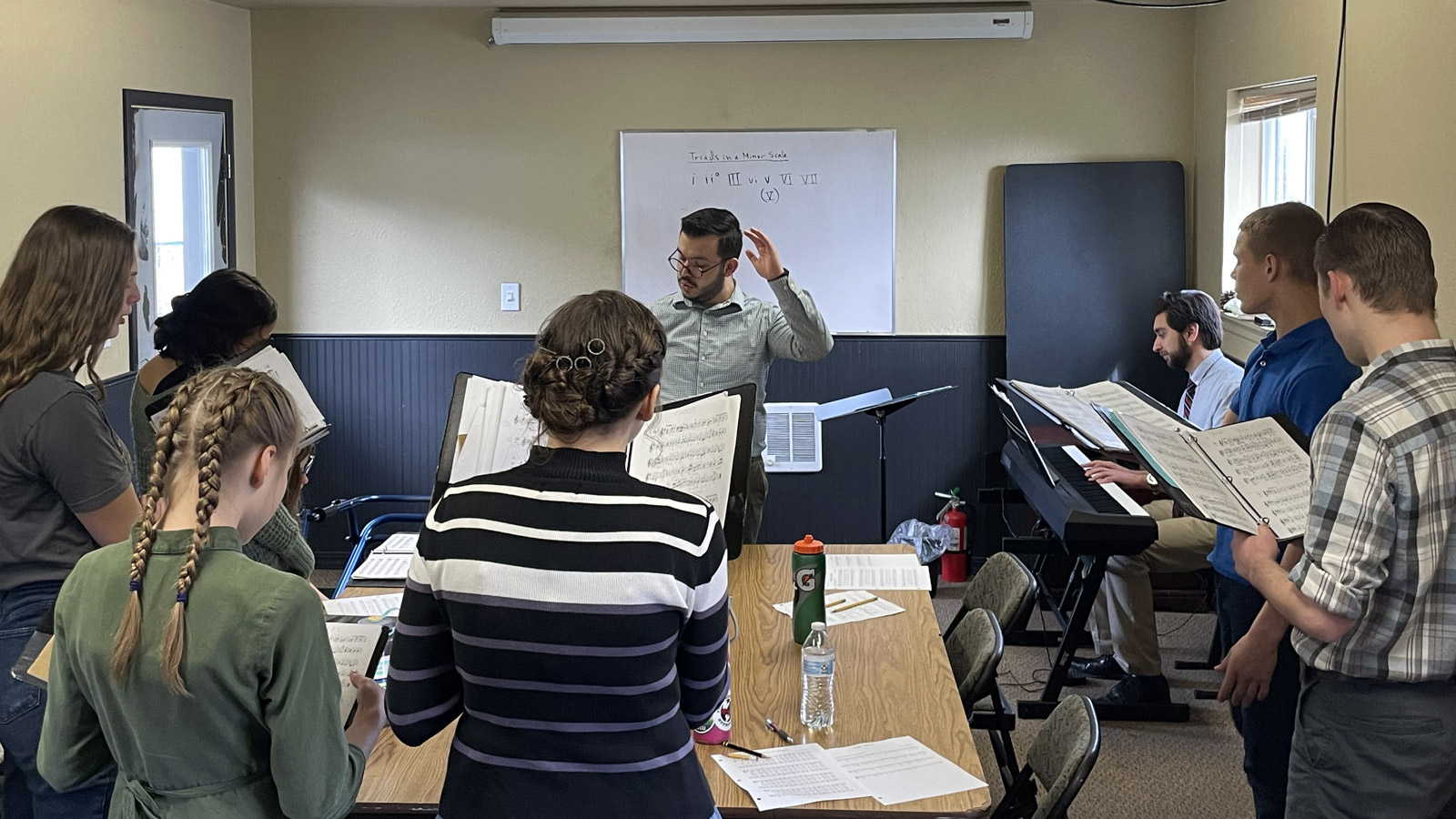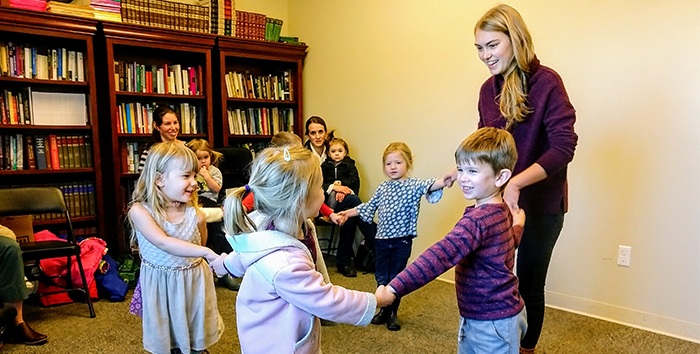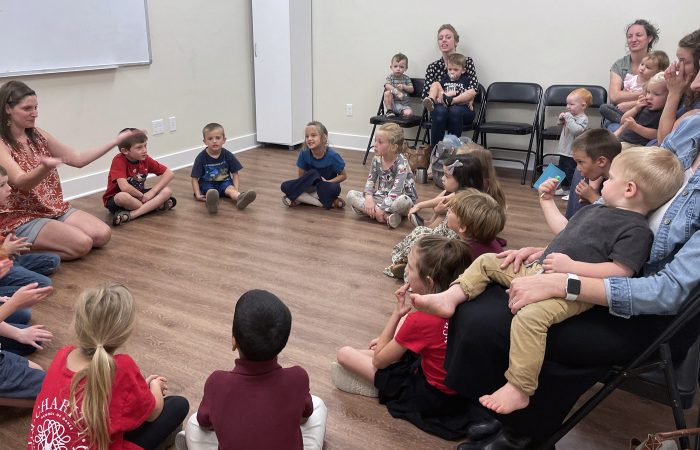Schola Cantorum is a music education program sponsored by the Conservatory of Music at New Saint Andrews College. We start with children who are five years old, around the age when they are starting to read words at an elementary level. We teach them simple songs and games that engage their bodies and imaginations, similar to how stories and rhymes captivate them in their language literacy development. As they progress, we introduce them to musical symbols that represent those they have encountered in singing and play.
They learn to write these symbols by hand and interpret musical sounds by writing down what they hear. As they grow, we teach them to be aware of harmony, so they can hear their own part in partnership with others. Not all of the children will become concert pianists or violinists, but they will have learned to read music on their own, started to understand how music works, become fascinated by harmony, and both blessed others and received blessings in performing music together.
Modern education is right to put a lot of emphasis on literacy. Understanding “literacy” is a journey that begins with recognizing and sounding out words and progresses to comprehending their meaning within sentences and effectively conveying that meaning through speech. Literate individuals have the ability to compile word lists and notes, construct sentences, and utilize abbreviations in digital communication. These skills are vital components of comprehensive literacy. When guiding young learners, it’s crucial to thoroughly equip them for their literacy journey. This entails teaching them the alphabet, phonics, and phonograms. As children immerse themselves in a language, they first absorb it through spoken interactions, and then replicate and articulate what they’ve learned to others. Listening and imitation play a fundamental role in literacy development and are best cultivated through everyday interactions and activities. Preparing children for literacy sets them on a path of discovery and empowerment through language.

Music is similar to language. The grammar of music consists not of letters and words, but of pitches, rhythms, and meter. Its syntax is made up of basic sounds and symbols. Music’s syntax forms even larger structures—songs, sonatas, and symphonies—which can be compared to paragraphs, essays, and novels in written language. Learning music is like learning to read: it starts with hearing spoken words, connecting sound to symbol, interpreting symbols in context, and then expressing meaning in our own way. Musical training begins with listening to sounds, progresses to interpreting written symbols, and reaches maturity when students can hear sounds in relation to other sounds over time, both in listening and playing.
Trinity Reformed Church
101 E. Palouse River Drive
Moscow, ID 83843

Singing School (Prep through Level 3)
Musicianship (ages 12-18)
Our goal in all levels of music is to train and equip students to worship the Triune God with joyful and thankful hearts. The Bible emphasizes skillful worship, so it is essential that our students need to be able to read music, understand how music works, and be proficient singers and players.
Our curriculum is designed to foster and develop musical skills in three ways:
CLASSES TAKE PLACE EVERY WEDNESDAY & FRIDAY:
Students will participate in two 50-minute classes each week, beginning August 21 through May 2
LEVELS AND AGES*:
*The course is sequential, building upon concepts and skills each year. Therefore, the levels are determined by past musical experience as well as by age/grade.
TUITION FEE:
$50 registration fee
$450 enrollment fee*
*Monthly payment plans available
HOW TO APPLY: To find the best fit for your child, please click the “Apply” button and answer the questionnaire. Our administrators will guide you in finding the best level for your student.

Contact Jocelyn Meyer with any questions about Schola Cantorum classes by emailing music@nsa.edu